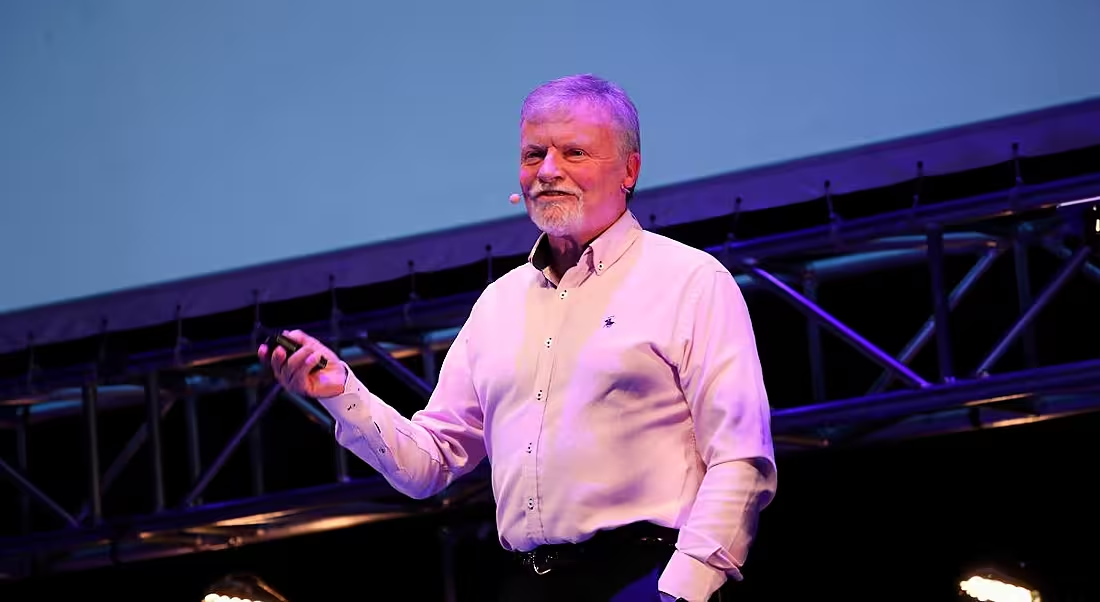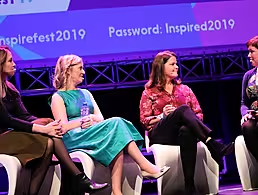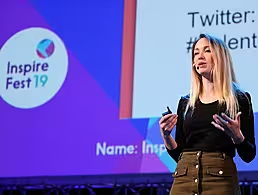At Inspirefest 2018, Peter Brabazon of Specialisterne Ireland made the compelling case for employers to give people with autism a chance to shine in the workplace.
People on the autism spectrum have a lot to contribute to the workforce and society if only they could be given a fighting chance.
That was the compelling case made by both Peter Brabazon, head of Specialisterne Ireland, and the managing director of SAP Labs Ireland, Liam Ryan, who fostered a highly successful programme that involved the hiring of workers with autism at SAP’s operations in Ireland.
Ryan told Inspirefest 2018: “Approximately 80pc of people who are on the autism spectrum [in Ireland] are unemployed.”
He added that employees SAP has brought on through a collaboration with Specialisterne have turned out to be highly committed workers who are hugely loyal to the company.
‘You get loyal, honest, humorous people who are hardworking’
– PETER BRABAZON
Brabazon, a seasoned engineer with more than 35 years’ experience in telecoms and energy, is married with three sons, one of whom has Asperger’s syndrome. He spoke eloquently and passionately about the untapped resource that the community of people with autism represents.
Specialisterne is an organisation that works to pair people on the autism spectrum with meaningful work that plays to their natural strengths while helping them circumvent some of the obstacles to them becoming gainfully employed.
So far, it has supported more than 150 people to gain employment and has also worked with undergraduates with autism to enable them to get the internships they need to complete their courses. Brabazon’s vision is to get this to 5,000 people.
Invisible disability hides focused workers
Beginning his presentation, Brabazon showed pictures of famous people, including Daryl Hannah, Dan Aykroyd, Courtney Love and Susan Boyle, all of whom have autism but have gone on to enjoy successful careers.
Brabazon said that autism is an invisible disability and that the typical problems for these people are social in terms of reading social cues such as body language or being too literal.
He said that while people with autism live in a slightly different world, they have skills and that early intervention is key, especially as more young people with autism go to third level. He added that some of these are in danger of getting poor qualifications if they fail to gain a good internship.
Often, the challenges in the workplace include processing sensory and environmental information or anxiety that kicks in when a manager or a job changes.
Brabazon said that there are ways of handling these matters and that, ultimately, what the employer gets in return often outweighs any doubt. He added that many of these workers have average to high intelligence, great attention to detail and, as Ryan from SAP can attest to, superb error detection.
“Often too, they have great empathy for people. They really are very good people if you get them to work in a charity. Yes, they are also suitable for STEAM (science, technology, engineering, arts and maths) jobs, but not all of them are pure techies or like Rain Man. Some are very good journalists, some are very good actors, musicians, and that’s what we have to remember.
“But you get loyal, honest, humorous people who are hardworking. Unfortunately, as Liam mentioned though, a lot of them are unemployed.
“The benefits are, for the autistic person, you can employ one and you will transform their lives because it is a way of their participating in society. It is that simple.”
A win-win for society, workers and employers
From a business point of view, employers get talent. “Yes, you have to make some accommodations but they are not that big.
“Obviously, the State gets a big benefit because you have someone coming off benefits and going on to become taxpayers.”
Brabazon pointed out that this value to the State of an unemployed person entering the workforce is approximately €1m.
“Overall, for society, we are more diverse and inclusive so it works.”
Brabazon said that Specialisterne – which is Danish for ‘The Specialists’ – has a structured approach that is candidate-focused, psychological, and prepares candidates with the skills and social etiquette they need for the workplace. “Finally, it is the placement in companies like SAP and matching our people to it and supporting them in that role.”
Often, the average age of these candidates is 25.
Brabazon said that the symbol of Specialisterne is the dandelion. “Some people consider it a weed but, just like our people, it provides the nectar for the bees first-off at the start of the year.
“We are saying that a person of ability that is valued and nurtured is employed. But if people are not respected or nurtured, they will end up unemployed.”
He pointed to the example of Patrick Brophy, a DCU graduate with Asperger’s who is now five years into a career with SAP.
Brabazon put out a call to employers: “We would like you to come on our journey to meet our mission and a vision of 5,000 people enabled to be employed in 20 years. So far, we’ve got to 150. We have a long way to go so we hope you can join us on that.”
Inspirefest is Silicon Republic’s international event celebrating the point where science, technology and the arts collide. Ultra Early Bird tickets for Inspirefest 2019 are available now.




